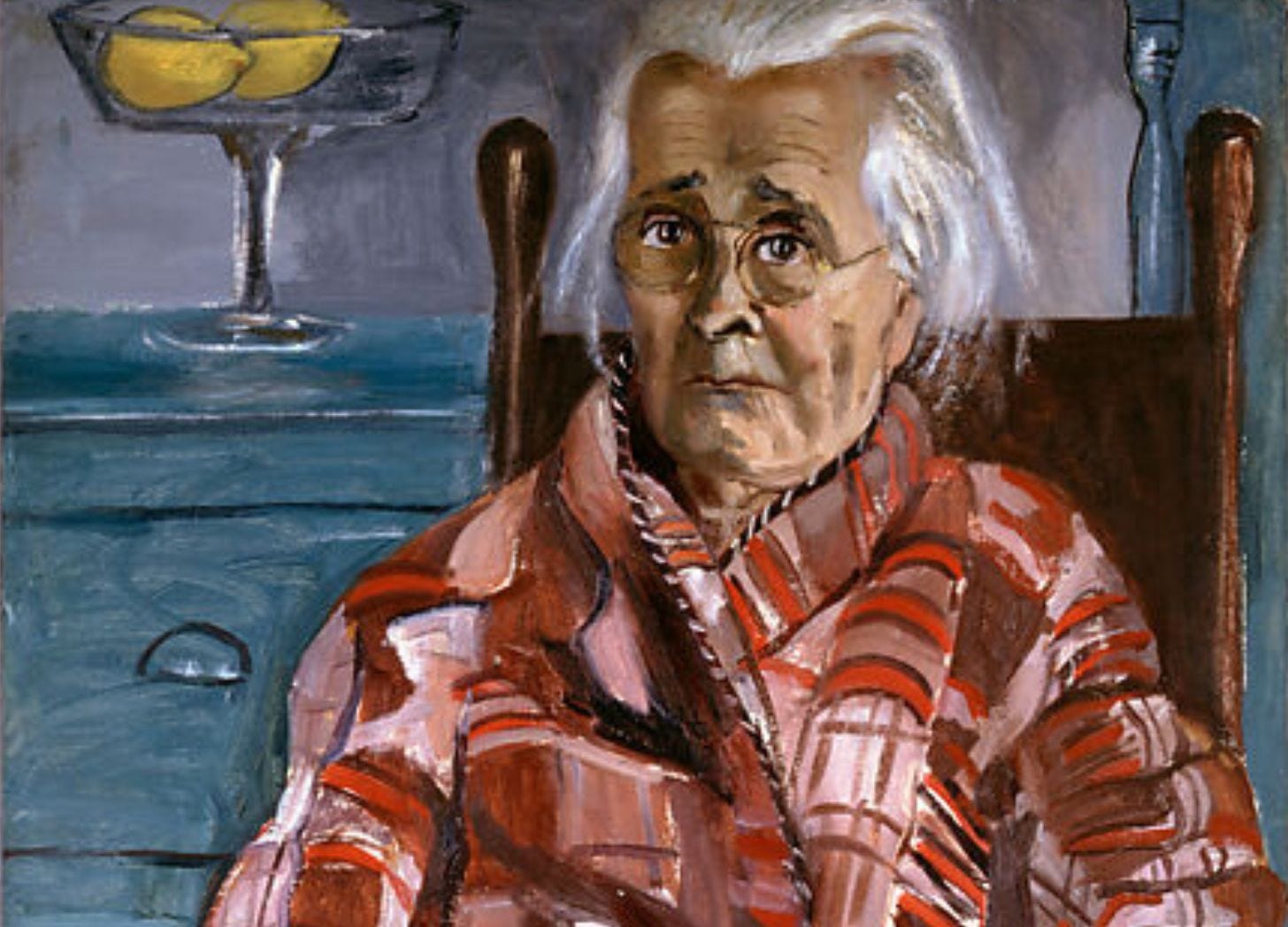If you’re new here, read this quick primer on the Story Energies, a new way to talk about storytelling.
You are a story. Genetic material (nature) planted in a particular environment (nurture) and propelled inexorably forward by these forces (nature and nurture) into a series of adventures, growing and learning, succumbing and overcoming, until, one day, you’ll lose your long battle with cancer, or be murdered by your spouse, or whatnot, and that will be it. The End.
No, you’re probably saying, there’s more to my story than that! My life is not just one long sequence of cause and effect. I have agency! I make choices, which impact my future and the world around me.
This need for control—or, at least, the feeling of control—which has probably roused your indignation, is deeply rooted in all of us. I’ve read that it’s a biological imperative, encoded in that raw genetic material we begin with1. And when that feeling is taken away from us, for one reason or another—when we feel out of control—it can have all sorts of consequences for our mood, and our physical and mental health.
Our questions about causality and control often surface in our stories. They impact our understanding of what a story is, or can be; of what is exciting or boring, authentic or contrived.
Standard Storytelling Advice tells us that a hero is someone who bravely assumes control, and achieves an important, irreversible change—first deep within themselves, then in the world around them.
But is this just wish fulfilment? Are our destinies this flexible? Does anyone ever really change? Can the world be saved?

There has been a lot of talk of change around here lately. Because it’s the start of a new year, probably, and, in the US, the start of a new Presidential Election cycle.
As anyone who tries to run a country or revise a story will tell you, change can sometimes be hard to bring about. Especially meaningful change. Especially change that brings us closer to where we really want to be.
This week, the wise and wonderful Jeanette Winterson returned to Substack2. She says she was motivated by Bishop Mariann Edgar Budd, and her appeals for mercy at Donald Trump’s latest inauguration. And she wanted to affirm the importance of storytelling, and imagination, especially when we feel under attack.
Any writer will find that the story answers back. It’s not obedient. It might want to go somewhere else. And those stories that end in tragedy? Maybe one of your favourite novels? What happens to you when you read it? As you read it, you see the alternatives, the missed chances, what might have happened, even when the people in the story are heading step by step to their doom. The outrage and sadness we feel prompts us towards different solutions, different outcomes, in our own lives, or in the lives of others.
Even when we’re feeling down, she’s saying, as readers or writers, Story itself retorts with alternative possibilities for us to consider. These might not make us feel better, but they do make us feel.
She’s promised to write every Sunday about what matters to her, because, she tells us, “It’s all I can do.” Telling stories is her way to feel in control. This is probably true of many of us.

Her next post begins:
How are we supposed to put ourselves together? When there is no picture? When the picture on the box doesn’t match the pieces in the box?
These have always been important questions for her, she tells us, because she was adopted, and because she grew up gay in a family and a society that would have preferred her to be, instead, “normal”. When she was a girl, there was something really exciting about imagining pieces into being, and fitting them together, and creating a picture that was altogether different to the reality she was every day presented with. A picture that was more real. That felt to her, in some inner, deep-down way, true.
Many of us walk around with the feeling that we’re missing one or two pieces, and it’s hard not to look for them everywhere, as we try to feel more ‘whole’. And this can be dangerous, if we’re being sold understanding in the shape of, for example, an alt-right ideology based on lies and hatred.
According to Winterson, I can tell the real from the counterfeit because real pieces don’t just create a picture of the external world (AKA a world view), but also re-shape my own understanding of the inner me.
When something is really new, everything that already exists alters in relation to it. You know this from whatever has been the most significant thing in your life so far. It wasn’t only your present that changed, but how you understood your past, how you visualised your future.
So, I learn something new about myself, and this alters my understanding of the story of my life.
It’s maybe not so much that I have changed, in some essential, general sense. But this thing I have learned changes my understanding of who I am, and that in turn can change my expectations for my future—and so lead me to behave differently, and make different choices. Maybe, if I find the right piece that completes the picture of who I should be, then I can be a hero after all?
Here’s my take on an exercise I was assigned in my first ever fiction-writing class, which remains one of my favourite ways to spark a story from nothing:
Free Writing Exercise: Wrong Place, Wrong Time
Don’t stop to think. Don’t worry about grammar or spelling. Just let loose with your pen (/keyboard) and let your stream-of-consciousness carry you... as you describe a character in a place where they don’t belong.
Maybe they haven’t been there before. Maybe this place is very different to the places they are normally seen. Maybe this is a place where society doesn’t expect them to be. Or maybe this is a place they frequently visit—just not at this time. Or maybe they usually visit this place at this time, but there’s something different going on today…
So describe the person, describe the place, describe what happens, describe anything at all that comes to mind…
Story generally arises from conflict. And one reliable source of conflict is between a person and the place in which they are—literally and figuratively—standing3. Jeanette Winterson’s real-life upbringing is an example of that, because, as she’s said, she was adopted, and because of her sexuality. Because she didn’t feel like she belonged.
But once a character finds themselves in the wrong place, at the wrong time, what then? How do they go about altering their course to end up someplace that feels more like home? Or, how can they change the place they’re in so that they can feel like they belong there? Or, how can they change their understanding of themselves—what missing pieces can they imagine—to find contentment where they are?
The question of whether or not you have free will is a difficult one, philosophically. People have been arguing about it for some time now, and many of the differences in their answers come down to variations in their definitions of the terms, free and will. A neuroscientist might debate with a humanist about consciousness and thermodynamics; an atheist might debate with a Christian about what exactly set things in motion; a Catholic might debate with a Protestant about whether our actions can help nab a spot in heaven; and a Buddhist might remind everyone that the self is an illusion they should try to transcend.
They all will probably, at some point, resort to a story to try to illustrate their point. An example, a parable, an allegory.
Whether we have control over our lives or not, we want it—or, at least, we want to allocate that control to someone or something else, which also works. We just can’t help making up stories, as I’ve said before here, so we can feel as if we’re in control of our lives, and as if those lives are important in a way we can understand and feel good about.4
In ’Pemi Aguda’s short story Manifest, [if you haven’t read it, I recommend you pause here and go read it now: my description won’t do it justice] a young woman who has always had smooth skin gets a pimple. Then, pimples. This is really bad, but she discovers that when she’s mean to her friends the pimples go away. Meanwhile, her mother is becoming convinced that she (our protagonist, evoked throughout the story in the second-person ‘you’ voice) is turning, in some mysterious way, into her grandmother, who was a terrible person. (And real evil does exist, if the snippets of news reports playing in the background are anything to go by.) This transformation, perhaps, is her destiny, which she can’t avoid. She can’t prevent her current self being obliterated. Or, perhaps, this newly awakened, old malevolent soul—this is who she was fated all along to become.
As I warned, this description doesn’t do the story justice. But if you read it, I’ll bet you’ll agree that Aguda does a fantastic job of harnessing some of those primal fears many of us hold, and some of those deep, dark questions about control, free will and destiny that we usually, in our everyday lives, try to ignore, to create a compelling, chilling story.
There is Potential Energy in the young woman’s clear skin, and her grandmother’s troubled legacy, as well as the second-person voice that implicates us readers. There’s Gravitational Energy5, in the competing ‘Manners’ or expectations for behaviour from her “normal” friends and work colleagues, and from her Pentecostal Christian family. And in the ‘Mysteries’ embedded in these questions about whether or not we can control who we become, especially when the story’s ‘rules’ are tweaked so that this possession or reincarnation feels actually possible. And Mysteries and Manners are combined in the news reports of real-life atrocities across the world. How can people do such horrible things? How can most of us go blithely on with our lives while these things are happening, right now, somewhere else? All this helps generate a gripping, unrelenting build-up of tension, or Elastic Energy: we get a sense from early on that it could happen, but will it actually happen? And if it does happen, what will happen then?
Will evil prevail? Is there yet cause for hope?
Hope. It can be hard to come by, sometimes. Especially in January. Especially when you read those news reports.
Our world harbours tremendous potential for hostility. Mostly because of the potential, borne within every one of us, for hostility, and cruelty, and violence.
But hope, this yearning for meaning, this reach for control, is the oxygen in the blood of all of our stories—at least in those that are not ‘counterfeit’, in Winterson’s terms, but ‘real’.
Hope is, in our terms, the font of Potential Energy.
Fate can sometimes seem inescapable, and sometimes it inspires a bone-chilling horror.
But at least as far as most of our stories go, that horror is picked out from the dark by our hope’s shimmering; we otherwise wouldn’t be able to see it.
So what can we learn from Winterson and Aguda? How can we hold these narratives side by side in our minds? What advice can we take forward into our own storytelling?
Here’s some things we can try:
Remember that our world comes pre-loaded with enormous Potential for both dread and hope.
Remember that things can go wrong. Really very wrong, in ways that make a mockery of all reasonable expectation.
Keep reading with a 7-day free trial
Subscribe to The Story Energies to keep reading this post and get 7 days of free access to the full post archives.








